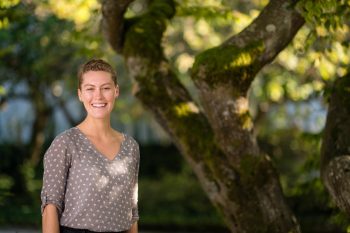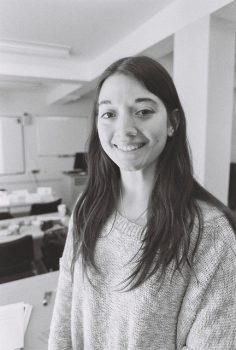IRES Seminar Series
Time: 12:30pm to 1:30pm (every Thursday)
Via Zoom
View video.
*********************************************************************************
Rights, Responsibilities, and Stewardship in a Mosaic “Lawscape”: Evidence From Community Forests in the Indian Himalaya
The role of community stewardship in biodiversity conservation has taken centre stage as conservation actors recognize the influence of the human-dominated matrix on biodiversity outcomes, and the social injustices of exclusionary protected areas. Among the oldest examples of formalized forest co-management in the world, the van panchayats of Uttarakhand, India are owned by the State and managed by local rightsholders. Though codified as discrete management units, van panchayats are not islands: the benefits they deliver are interdependent among a mosaic of management and tenure models. Drawing on qualitative research in Johar Valley, in the Greater Himalaya, this study explores how forest councils navigate their stewardship roles vis-à-vis neighboring communities and governing authorities. The distribution of forest rights and responsibilities among and between forest actors illustrates the complex topography of this “lawscape.” This study aims to shed light on the opportunities and barriers this mosaic presents for stewarding communities as they care for ecologically and culturally significant places.
Madison Stevens

IRES PhD Program
Bio:
Madison is a PhD Candidate at the Institute for Resources, Environment, and Sustainability at the University of British Columbia, under the supervision of Dr. David Boyd and Dr. Janette Bulkan. Her research interests center on the intersection of human rights and conservation, examining the implementation of rights-based approaches to protected areas. Her dissertation work employs qualitative ethnographic methods and a political ecology lens to understand the governance dimensions of community forests in Uttarakhand, India. She is also involved in collaborative projects focused on the equity dimensions of climate adaptation and the use of evidence in conservation planning. Madison holds a BA in Comparative Literary and Cultural Studies from Franklin University, Switzerland, in 2015, where her thesis highlighted Indigenous land rights and conflict in Uganda. Her professional background includes a decade of experience working for conservation nonprofit organizations, notably as an Education Media Specialist and Logistics Coordinator with Polar Bears International since 2011. Volunteer and work opportunities with a range environmental initiatives have taken her all over the world, including an international conference on climate change in Antarctica with 2041, and research on sustainable development in sub-Saharan Africa.
Who Are These Crazy People? Sharing the Stories Behind Privately Protected Areas in Peru
Private protected areas (PPA) in Peru represent an innovative way of conserving and defending nature, accounting for almost 400,000 protected hectares nationwide. Unlike PPAs in the Global North, PPAs in Peru are managed by local communities and families without any type of incentive or government support. Thus, representing a fascinating case-study for studying people’s relationships with nature and their motivations for voluntarily protecting the land. In this presentation, I will focus on PPAs run by individuals and families throughout the country. By having conducted online interviews and a legal document analysis, I hope to convey PPAs owners’ stories about their relationships with the land, wildlife and people.
Rocío López de la Lama

IRES PhD Program
Bio:
Rocío López de la Lama is a PhD Candidate under the supervision of Dr. Kai Chan. She has been working in nature conservation since 2012, mainly in Peru, focusing on people’s relationships with nature from different perspectives (e.g., small-scale fisheries, protected areas). Her current work explores voluntary land conservation in Peru, shedding light into people’s values, motivations and concerns regarding nature’s protection. Rocio is a biologist and holds a Master of Philosophy in Conservation Leadership from the University of Cambridge.